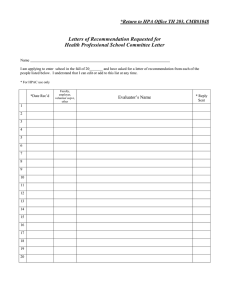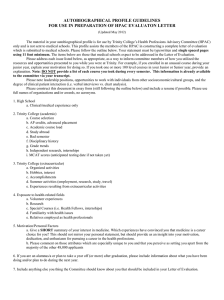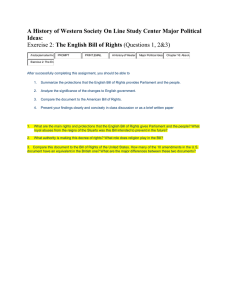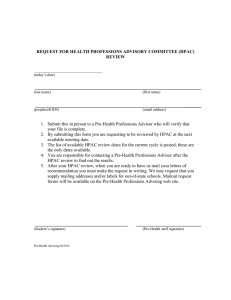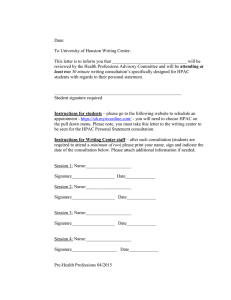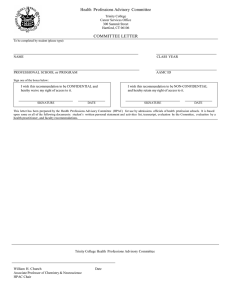XI. Procedures for Amending Human Protections Policies and Procedures
advertisement
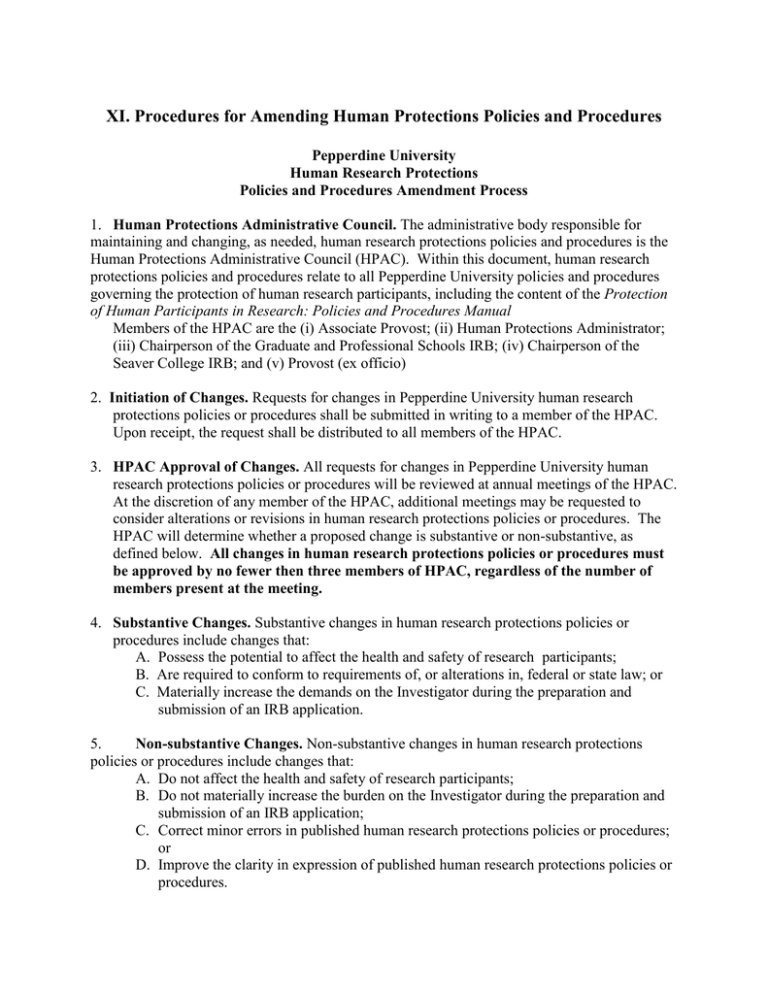
XI. Procedures for Amending Human Protections Policies and Procedures Pepperdine University Human Research Protections Policies and Procedures Amendment Process 1. Human Protections Administrative Council. The administrative body responsible for maintaining and changing, as needed, human research protections policies and procedures is the Human Protections Administrative Council (HPAC). Within this document, human research protections policies and procedures relate to all Pepperdine University policies and procedures governing the protection of human research participants, including the content of the Protection of Human Participants in Research: Policies and Procedures Manual Members of the HPAC are the (i) Associate Provost; (ii) Human Protections Administrator; (iii) Chairperson of the Graduate and Professional Schools IRB; (iv) Chairperson of the Seaver College IRB; and (v) Provost (ex officio) 2. Initiation of Changes. Requests for changes in Pepperdine University human research protections policies or procedures shall be submitted in writing to a member of the HPAC. Upon receipt, the request shall be distributed to all members of the HPAC. 3. HPAC Approval of Changes. All requests for changes in Pepperdine University human research protections policies or procedures will be reviewed at annual meetings of the HPAC. At the discretion of any member of the HPAC, additional meetings may be requested to consider alterations or revisions in human research protections policies or procedures. The HPAC will determine whether a proposed change is substantive or non-substantive, as defined below. All changes in human research protections policies or procedures must be approved by no fewer then three members of HPAC, regardless of the number of members present at the meeting. 4. Substantive Changes. Substantive changes in human research protections policies or procedures include changes that: A. Possess the potential to affect the health and safety of research participants; B. Are required to conform to requirements of, or alterations in, federal or state law; or C. Materially increase the demands on the Investigator during the preparation and submission of an IRB application. 5. Non-substantive Changes. Non-substantive changes in human research protections policies or procedures include changes that: A. Do not affect the health and safety of research participants; B. Do not materially increase the burden on the Investigator during the preparation and submission of an IRB application; C. Correct minor errors in published human research protections policies or procedures; or D. Improve the clarity in expression of published human research protections policies or procedures. 6. Review and Approval Process. Upon approval by the HPAC, substantive changes in human research protections policies or procedures will be reviewed by the University Academic Council (UAC). During the period of review by the UAC, the proposed change will be distributed to all Pepperdine University faculty members for not less than a 30 day period of review and comment. If no comments are received during the period of review and comment, the change shall become effective within 90 days of the Provost’s approval, in accordance with the guidelines stated in section 7. If substantive comments are received during the period of review and comment, the Provost may direct the HPAC to reconsider the change. Upon consideration of the comments, the HPAC will forward its recommendation regarding the change to the provost for approval. In the event of urgent circumstances (such as a deadline imposed by a governmental or other external agency or institution), that make it impossible or impracticable for the HPAC to provide the period of comment and review before recommending a substantive change to the provost, the HPAC may provide the period of comment and review after the provisional adoption of the policy or take other steps to ensure that faculty have an opportunity to review the change. 7. Effective Date for Substantive Changes. Approved substantive changes in human research protections policies or procedures become effective within 90 days of the Provost’s approval as determined by HPAC. A formal announcement of all substantive changes will be distributed to Pepperdine University faculty and documented on the IRB website. A record of the changes shall be maintained in an appendix of the Protection of Human Participants in Research: Policies and Procedures Manual. 8. Effective Date for Non-substantive Changes. Approved non-substantive changes in human research protections policies or procedures will become effective at the discretion of the HPAC, but no later than twelve months following approval. Changes will be documented on the IRB website, and approved non-substantive changes also will be published in an appendix of the Protection of Human Participants in Research: Policies and Procedures Manual on August 15th annually.
